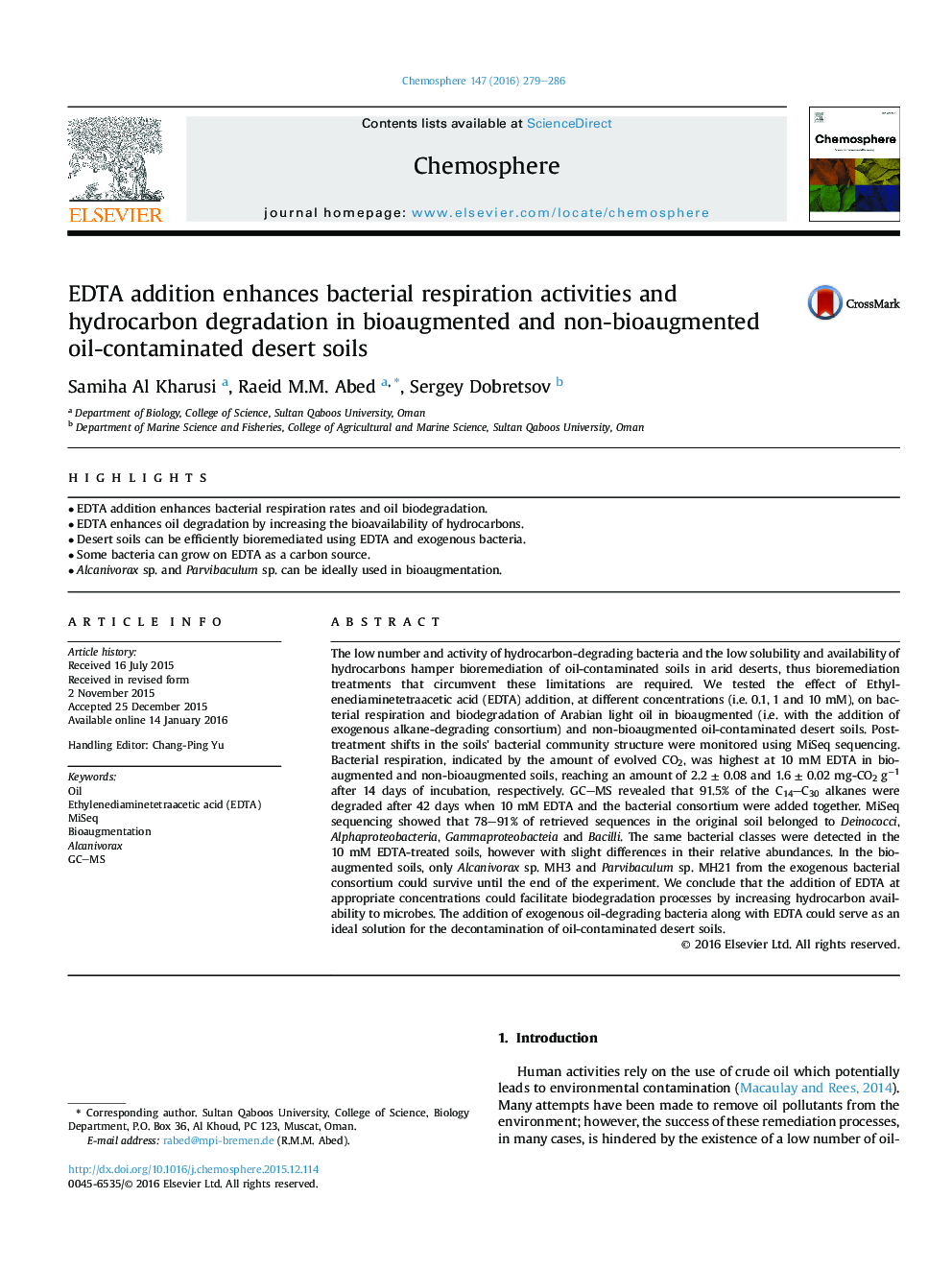| کد مقاله | کد نشریه | سال انتشار | مقاله انگلیسی | نسخه تمام متن |
|---|---|---|---|---|
| 4408057 | 1618824 | 2016 | 8 صفحه PDF | دانلود رایگان |

• EDTA addition enhances bacterial respiration rates and oil biodegradation.
• EDTA enhances oil degradation by increasing the bioavailability of hydrocarbons.
• Desert soils can be efficiently bioremediated using EDTA and exogenous bacteria.
• Some bacteria can grow on EDTA as a carbon source.
• Alcanivorax sp. and Parvibaculum sp. can be ideally used in bioaugmentation.
The low number and activity of hydrocarbon-degrading bacteria and the low solubility and availability of hydrocarbons hamper bioremediation of oil-contaminated soils in arid deserts, thus bioremediation treatments that circumvent these limitations are required. We tested the effect of Ethylenediaminetetraacetic acid (EDTA) addition, at different concentrations (i.e. 0.1, 1 and 10 mM), on bacterial respiration and biodegradation of Arabian light oil in bioaugmented (i.e. with the addition of exogenous alkane-degrading consortium) and non-bioaugmented oil-contaminated desert soils. Post-treatment shifts in the soils' bacterial community structure were monitored using MiSeq sequencing. Bacterial respiration, indicated by the amount of evolved CO2, was highest at 10 mM EDTA in bioaugmented and non-bioaugmented soils, reaching an amount of 2.2 ± 0.08 and 1.6 ± 0.02 mg-CO2 g−1 after 14 days of incubation, respectively. GC–MS revealed that 91.5% of the C14–C30 alkanes were degraded after 42 days when 10 mM EDTA and the bacterial consortium were added together. MiSeq sequencing showed that 78–91% of retrieved sequences in the original soil belonged to Deinococci, Alphaproteobacteria, Gammaproteobacteia and Bacilli. The same bacterial classes were detected in the 10 mM EDTA-treated soils, however with slight differences in their relative abundances. In the bioaugmented soils, only Alcanivorax sp. MH3 and Parvibaculum sp. MH21 from the exogenous bacterial consortium could survive until the end of the experiment. We conclude that the addition of EDTA at appropriate concentrations could facilitate biodegradation processes by increasing hydrocarbon availability to microbes. The addition of exogenous oil-degrading bacteria along with EDTA could serve as an ideal solution for the decontamination of oil-contaminated desert soils.
Journal: Chemosphere - Volume 147, March 2016, Pages 279–286